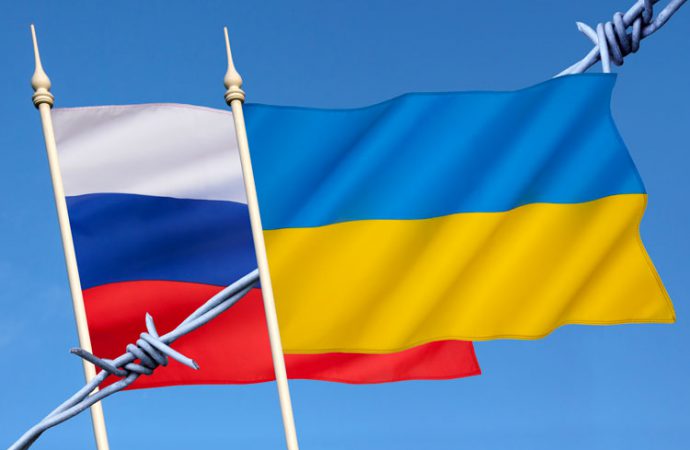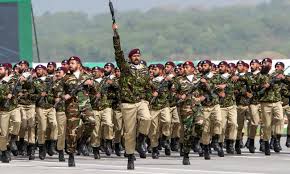The Russia Ukraine war remains confined within the territory of Ukraine but, its economic implications are global in nature. The sanctions imposed by western powers on Russia and blocked Ukrainian ports has crippled the global supply chain, resulting in an exponential increase in the prices of basic commodities. Europe although, remains at a high risk
The Russia Ukraine war remains confined within the territory of Ukraine but, its economic implications are global in nature. The sanctions imposed by western powers on Russia and blocked Ukrainian ports has crippled the global supply chain, resulting in an exponential increase in the prices of basic commodities. Europe although, remains at a high risk due to its dependence on Russian gas and petrol as well as Ukrainian key food resources the threat to low income economies is far worse, as most of them are at the brink of an economic collapse.
Food security is the most eminent threat faced by global economies currently. Ukraine is the largest producer of wheat globally but, the disruption in trade routes as hundreds of ships laden with wheat and corn have been stranded on Ukrainian ports is leading to food shortages and inflation around the world. Similarly, live stock markets are also declining as the grain exported to Egypt was used for livestock. Food producing countries are likely to be impacted less in terms of feeding their population however, they might not be able to export due to the increasing demand in their own countries. In such times a bigger threat is faced by countries like Ghana and Sri Lanka that are at high risk of facing starvation as they are completely dependent on outside sources for their wellbeing. As a result of these threats the blockade of Ukrainian ports by Russia the ensuing food crisis has been labelled as a “war crime” by EU Foreign Policy Chief Joseph Borrell.
Another major issue is the soaring oil prices coupled with the increasing dollar rate which has been a major contributor towards negative balance of payments for most developing economies. This is reflected by the fact that fuel prices are up by 63 per cent in Sudan, 50 per cent in Sierra Leone and 56 per cent in Pakistan while Bangladesh has revealed that it too is losing 90 crore Taka on oil imports per day. At this point countries with few or no economic ties with Russia are likely to suffer badly whereas those with favorable relations with Russia are likely to reap the benefits. A prime example of this is India by keeping its relations open with Moscow is benefitting from access to discounted oil and gas by Russia.
Things are however, different for countries that do not have such diplomatic ties to benefit from. A useful case study to consider would be that of Sri Lanka, while the country had its problems relating to mismanagement, corruption and poor economic policies as well as covid that had reduced the economic prospects. There was some hope for survival but, the outbreak of the war and western sanctions on Russia led to a complete collapse as the country could not keep up with the balance of payments. Resulting in a twin deficit. This unfortunately is not the only country as many other countries are anticipated to follow suit sooner or later.
IMF also has indicated in a report that global growth is likely to slow down from an estimated 6.1 per cent in 2021 to 3.6 per cent in 2022 and 2023. It further went on to elaborates that the inflation in developed countries currently stands at 5.7 per cent and at 8.7 per cent in developing economies. Therefore, the IMF managing director has urged countries like China which is the biggest global lender and the US which has a strong hold on the IMF to speed up debt relief for heavily indebted countries as this downward spiral faced by developing countries would eventually damage stronger nations as well because no one is safe in the storm.
Helping weaker economies survive the tide by providing debt relief is one option to ease the tensions more countries are now aiming towards deglobalization, this is not the first time a change in approach is being debated but since World War I the world has been engaging in such discussions and has been noted on several other occasions. When Russia got hit with sanctions in 2014 after taking Crimea, they responded by making their economy sanction proof through emphasizing on domestic production. As more and more countries are realizing that dependence on global supply chain can be a source of vulnerability the focus is shifting to self-sufficiency. Even the US has expressed their intention of becoming less dependent on China a policy which was introduced by the Trump administration and is being carried forward by Biden with the same vigor.
It is in these testing times that it becomes important for countries that are externally dependent to do their cost benefit analysis and develop strategies that can help them survive the ever-changing landscape of the outer world. Although, dependence on the outer world cannot be avoided completely but reducing it to the bare minimum would be the best solution.
- Russia-Ukraine and Lawfare - October 26, 2022
- Russia – Ukraine War & its Impact on Growing Economies - September 21, 2022
- Global Warming and Pakistan - September 15, 2022






















Leave a Comment
Your email address will not be published. Required fields are marked with *